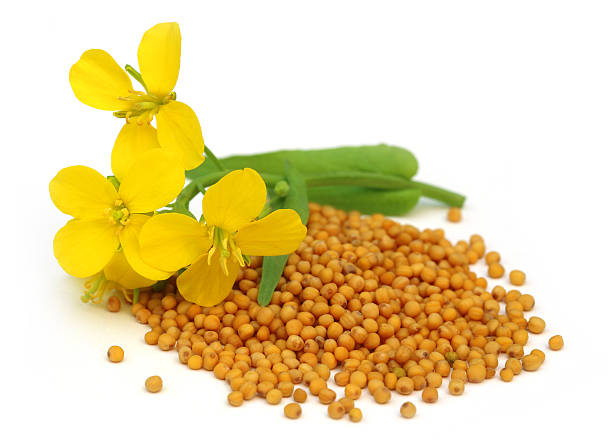Mustard is a condiment that is commonly used to add flavor to a variety of dishes. It is made from the seeds of the mustard plant, and is available in several different forms, including yellow mustard, Dijon mustard, and whole-grain mustard. One of the most common questions that people have about mustard is how many calories it contains. In this article, we will take a closer look at the calorie content of mustard and explore how it can be incorporated into a healthy diet.
First, it is important to understand that the calorie content of mustard can vary depending on the type of mustard and the brand. Generally speaking, however, mustard is considered to be a low-calorie condiment. A single teaspoon of yellow mustard, for example, contains just about 5 calories. Dijon mustard and whole-grain mustard may contain slightly more calories, but they are still relatively low in comparison to other condiments.
One of the reasons that mustard is considered to be a low-calorie condiment is that it is mostly made up of water and vinegar. These ingredients have very few calories, which means that the overall calorie content of mustard is quite low. Additionally, mustard is also a good source of antioxidants, which can help to protect the body against the harmful effects of free radicals.
The calorie content of mustard varies depending on the type of mustard and the serving size. A teaspoon of traditional yellow mustard contains around 3 calories, while a teaspoon of Dijon mustard contains around 5 calories. Similarly, a tablespoon of yellow mustard contains around 11 calories, while a tablespoon of Dijon mustard contains around 15 calories.
It’s important to note that these calorie counts are based on a standard serving size of one teaspoon or one tablespoon. However, many people may use more than this when adding mustard to their food. Therefore, it’s important to pay attention to the serving size and to be mindful of how much mustard you are using in order to accurately track your calorie intake.
Mustard is also low in fat and cholesterol, making it a healthy choice for those who are trying to watch their calorie intake. In addition, mustard is a good source of vitamin A, vitamin C, and vitamin K, as well as minerals like calcium, iron, and zinc.
Mustard also has many health benefits. It contains a compound called allyl isothiocyanate which has been found to have anti-cancer properties. It’s also been found to have anti-inflammatory properties, which can help to reduce the risk of chronic diseases such as heart disease and diabetes.
There are a variety of different types of mustard available, each with their own unique flavor and calorie content. Some popular types of mustard include yellow mustard, Dijon mustard, honey mustard, and spicy mustard. It’s important to be mindful of the calorie content of different types of mustard when adding it to your food in order to accurately track your calorie intake.
When it comes to using mustard as a condiment, it’s best to use it in moderation. A little bit of mustard can add a lot of flavor to your food without adding too many calories. Additionally, you can also use mustard as a marinade for meat, fish, and vegetables, which can help to infuse them with flavor while also keeping the calorie count low.
In conclusion, mustard is a flavorful and low-calorie condiment that can be used in a variety of dishes. The calorie content of mustard varies depending on the type of mustard and the serving size, with a teaspoon of yellow mustard containing around 3 calories and a teaspoon of Dijon mustard containing around 5 calories. Regardless of the type of mustard you choose, be mindful of serving size and use it in moderation to keep the calorie count low.

 Home
Home Health
Health Diet & Nutrition
Diet & Nutrition Living Well
Living Well More
More












